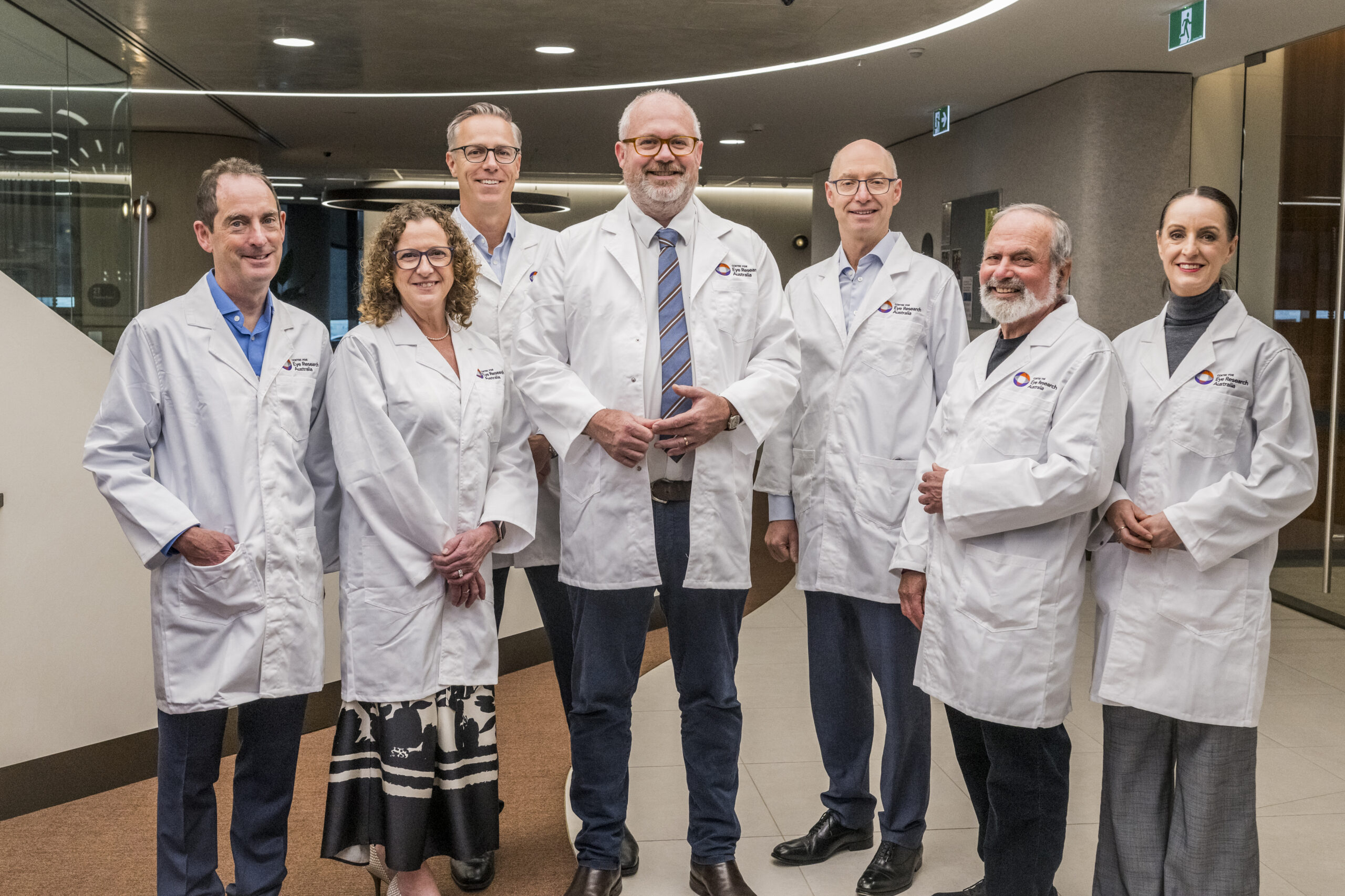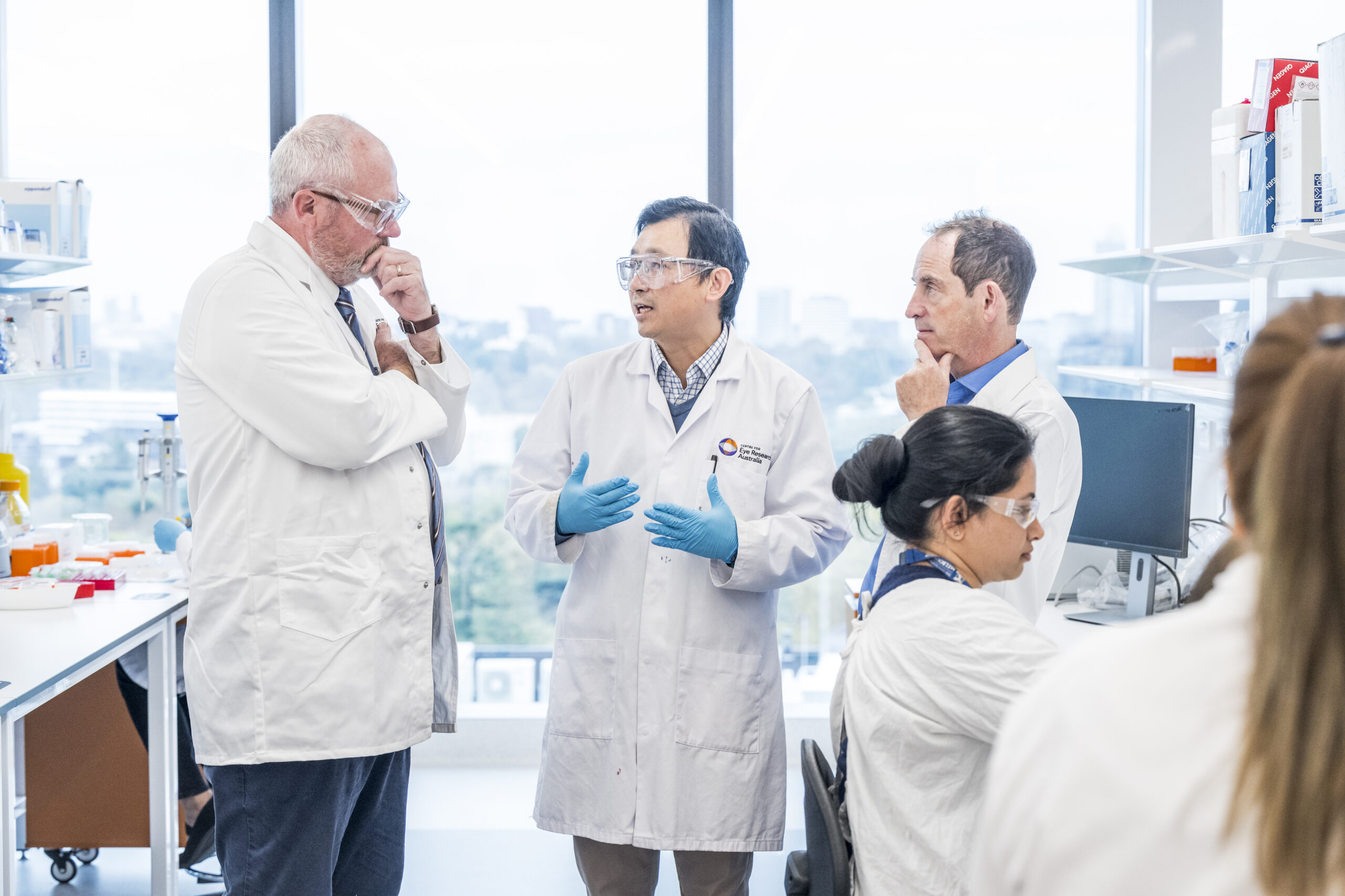News
Glaucoma implant’s investment success
CERA congratulates Melbourne biotechnology company PolyActiva on its latest funding success.
The Centre for Eye Research Australia has welcomed a landmark investment in Melbourne biotechnology company PolyActiva, which will fast-track the development of innovative eye implant technology to treat glaucoma.
Australia’s new Minister for Industry, Innovation and Science Senator Tim Ayres , accompanied by the Member for Melbourne Sarah Witty MP, announced a $27 million investment in PolyActiva from the National Reconstruction Fund Corporation during a visit to CERA on 30 May.
PolyActiva is developing a device that could transform the treatment of glaucoma by replacing multiple daily eyedrops with a biodegradable implant which releases glaucoma drugs into the eye over a period of six to 12 months.
Funding from the NRFC, along with an additional $13 millIon from Brandon Capital, will enable PolyActiva to keep its technology and manufacturing in Australia, grow its highly skilled workforce and complete its Phase 2b clinical trial.

Irreversible blindness
Glaucoma is the world’s leading cause of irreversible blindness, affecting more than 80 million people globally.
Senator Ayres said the investment in PolyActiva means that millions of people could one day access Australian technology to save their sight.
“Australia is the home of Cochlear, the home of ResMed and all of these fantastic medical technology capabilities and now it’s permanently the home of PolyActiva,’’ he said.
CERA Managing Director Professor Keith Martin congratulated PolyActiva on its latest funding success.
PolyActiva’s implant technology emerged from research conducted at the CSIRO, CERA and the Bionics Institute. CERA also ran the Phase 1 clinical trial for the device and was a site for its Phase 2 trial.
Professor Martin, an ophthalmologist and glaucoma specialist, was also Principal Investigator on the trial and has delivered the technology to clinical trial participants.
“CERA is extremely proud to have played a part in supporting PolyActiva and help them take an innovative research idea from bench to bedside,’’ he said.
“Our research partnership with PolyActiva reflects CERA’s commitment to partnering with industry in clinical research and to working with others to improve the lives of people living with vision loss and blindness.”
Professor Martin said PolyActiva’s implant technology had the potential to revolutionise glaucoma treatment for millions of people worldwide.
“Glaucoma patients typically need to take multiple eyedrops a day to control their eye pressure and prevent vision loss,’’ he said.
“However, many patients find the drops difficult to administer, forget to take them or find that they irritate their eyes. This means that less than half of all patients consistently use their drops which puts them at increased risk of vision loss.’’
PolyActiva CEO Vanessa Waddell said PolyActiva was on a mission to reduce glaucoma vison loss globally.
“This investment will ensure that we can complete our Phase 2b clinical trial and prepare for Phase 3 registration trial which will take us one step closer to a potential new therapy for glaucoma.”

Meeting glaucoma scientists
During his visit to CERA, Senator Ayres met glaucoma researchers from the Visual Neurovascular, Visual Neuroscience and Genetic Engineering teams.
He also met clinical research participant Tom Valenta, who lives with glaucoma and has taken part in studies at CERA for more than a decade.
Valenta, whose mother experienced serious vision loss from glaucoma, welcomed the investment in glaucoma research.
“Glaucoma research has meant that I have been able to control my glaucoma over many years and not lose my sight as my mother did,’’ he said.
“Glaucoma is an inherited disease, and research gives me hope for the future, not just for me but for my children and grandchildren.’’
